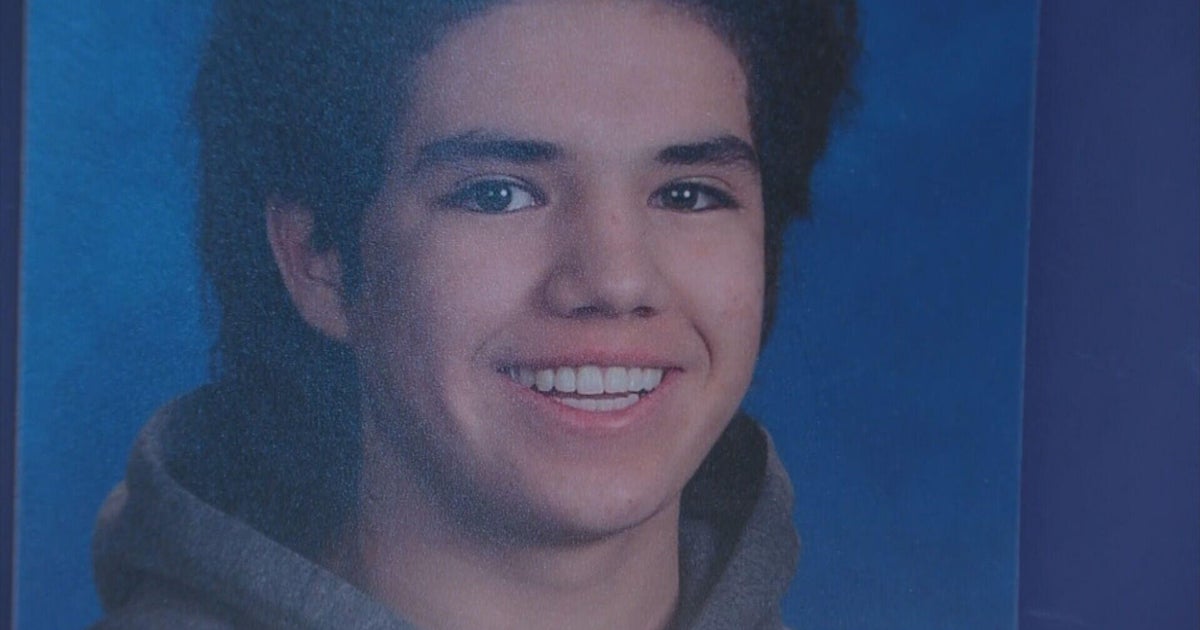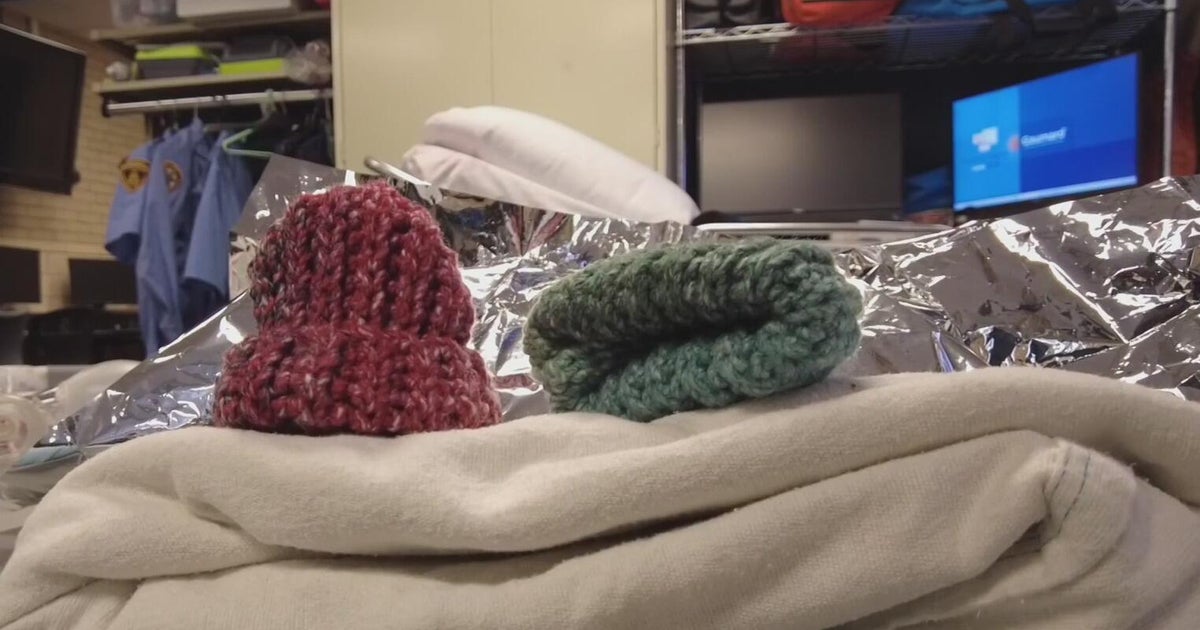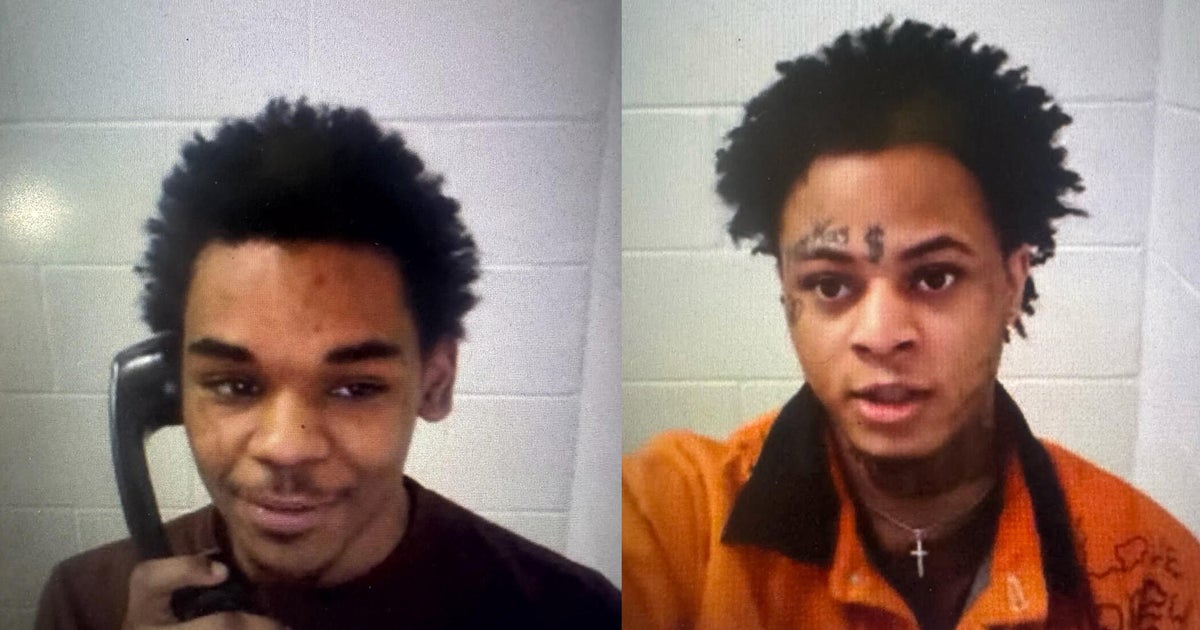I-Team: Suicide Survivor Shares Her Ordeal, Mental Hospital Under Scrutiny
Follow CBSDFW.COM: Facebook | Twitter
NORTH TEXAS (CBSDFW.COM) - "I've been told it's a miracle I am even alive."
She doesn't remember much from the day she tried to kill herself, but the mental and physical scars are there. The now 21-year-old woman is not ready to reveal her identity, but she wants everyone to know what happened to her.
The young mother was rushed to Sundance Behavioral Hospital in May of 2015 after she was found standing on a bridge over I-30 about to jump. State records obtained by the I-Team show the woman was admitted with "suicidal ideation." The staff was to check on her "every 15- minutes."
But on a day state documents show "she hadn't been evaluated by a psychiatrist," she was left alone long enough to attempt suicide.
"I went downstairs with a sheet around me, put it around my neck and slammed the door shut," she explains.
State records obtained by the I-Team show she was found with the sheet around her neck "unresponsive and pulseless."
Her attorney, Robert Greening, described what happened afterwards. "When my client hung herself, fortunately she wasn't successful but unfortunately she was there for an unknown period of time before someone finally found her. She was asphyxiating for we don't know how long and that caused her brain to be without sufficient oxygen."
Her brain was damaged. She spent weeks on a ventilator in the ICU. She said it took months for her to learn to walk again. And she will never be the same.
"I don't have any memories of being inside the hospital. I just remember that I was scared," she said.
This is not the first time the I-Team has heard patients say they were "scared" at one of the three North Texas Sundance facilities. In November, several parents and teens came together in the CBS11 studios saying that they experienced violence from other patients as well as staff.
The I-Team has received dozens of similar complaints since our first investigation in November 2016.
In emails sent to the I-Team, former patients and families complained the hospital was a "horrifying experience" where "no one felt safe". Patients said they experienced "lots of violence" and "lack of patient supervision". One patient's family member said the hospital caused more harm than good.
The I-Team was also contacted by a man who says he is a former manager at Sundance Hospital. He is looking for a job and did not want to be identified but he did talk on camera. He said he quit his job at Sundance after watching a staff member get rough with a 7-year-old child.
"He (another employee) picked him up and shaked him," he told the I-Team's Ginger Allen. "I am like 'wait, no, don't do that.' "
The man shared pictures he said he took inside the hospital. The photos show graffiti on walls, children sleeping on mattresses on the floor with food nearby, holes in the walls and ceilings, leaky roofs, clogged toilets, and an employee sleeping on the job.
"That's someone's life in his hands. He should be watching," the man said.
Since January 2015, Sundance facilities were cited for more than 50 deficiencies by the state of Texas. Records describe standards not met due to restraints without physician's orders, lack of safety, lack of treatment plans, lack of supervision, and sanitation issues.
The man who said he is a former manager also told the I-Team there were many problems with medications. "I heard more complaints of patient not getting their medicines. They got the wrong medicines. The only time they got the medicine is when they were acting up and they got a shot to help them calm down."
Allen asked him, "What did they call that shot?"
He responded, "Booty juice."
Booty juice is a term the I-Team has heard often from patients who say they were terrified of the shot which would sedate them.
In our November 2016 I-Team report, several patients told us, "We got threatened with it."
Lee Spiller with the Citizens Commission on Human Rights contacted the I-Team after seeing its reports. He said that the state is not tough enough on these facilities.
"The number of substantiated complaints is alarming," Spiller said. "Texas is the land of unlimited second chances."
After reviewing the documents the I-Team obtained and reading the lawsuit the woman who attempted suicide filed, Spiller said, "It's shocking. It's heartbreaking. And, it shouldn't be happening."
- Sundance Responds
No one from the facility would talk to the I-Team on-camera; however, a spokesperson for Sundance Behavioral Health sent CBS11 the following statement:
"Sundance specializes in mental health and substance abuse treatment for patients, including those in need of in-patient, acute care. It's the last resort for many and usually involves extraordinarily demanding situations such as drug dependence, severe depression and even violent behavior. We understand it can be difficult to accept that a loved one needs this specialized care and monitoring. We strive to provide the best possible care to help these patients get better in a safe and compassionate environment. That is the nature of the challenges here.
We have helped patients achieve miracles to solve their illness and move forward toward meaningful lives. We are providing the type of specialized care that others can't, but that is critically important to save lives and give our patients a chance to recover in what is often defined as a devastating and impossible situation or outlook."
On behalf of Sundance, Dr. Kishore Sunkara, Chairman of the Board, also replied to the following specific questions sent by the I-Team:
A former patient tells us she attempted suicide in your Garland facility. We cannot answer this question due to patient privacy rules. Because of the nature of cases handled at Sundance facilities, some patients can pose a danger to themselves or others. Our staff monitors all patients and uses recognized and accepted procedures to ensure the safety and well-being of patients and staff.
Following the CBS11 report in November 2016, other families and former patients contacted the I-Team complaining about neglect, violence and threats with "bootie juice" they say they experienced at Sundance.
The report in November 2016 was not fair and referenced issues from 2015 that had been corrected. The report didn't show an understanding of the issues facing the patients and families we serve, and we should have done a better job explaining these issues. There are times a patient displays violent behavior toward himself or herself or to those around them. After a careful review and with a medical doctor's approval, patients may receive an emergency injection to calm an acutely agitated patient.
What are the facilities doing to reduce complaints and state deficiencies?
As an accredited and licensed psychiatric hospital, Sundance undergoes regular rigorous review. Both Sundance Hospital facilities received a new two-year license in January 2017 from the Texas Department of State Health Services. Regarding complaints, we always want feedback from patients and their parents and guardians about any concerns as part of our quality review process; it's the way we get better.
What new policies are in place to prevent future complaints and state deficiencies?
We don't want to prevent complaints. Our goal is to keep an open line of communications with all patients and their families and we have multiple systems in place to allow for that. We are accredited by the Joint Commission and our license was renewed by the Texas Department of State Health Services in January. That would not have happened if there were significant deficiencies.
We implemented a Patient Ambassador program and assign patient rooms to senior managers. Senior managers meet with each patient's family at least twice a week to provide updates, assure their satisfaction with the treatment plan and address any concerns they may have. Feedback from the program has helped improve care and provide positive recognition for our staff members.
CBS11 understands the CEO recently left and one of the owners recently passed away. Has this impacted management?
No, there has been no impact.
Can you please tell CBS11 who is in charge at Sundance - new CEO? Board? Other owners? How is management changing?
The overall systems CEO recently left DFW to pursue another opportunity. Each facility has its own CEO, but we expect to name a new Systems CEO later this month. Ownership has not changed.
In a follow-up, Sundance sent CBS11 this statement as well:
After we sent you answers to your questions regarding Sundance Behavioral Healthcare Systems, we received some additional information regarding your question about medical injections. Please attribute the information below to Dr. Kishore Sunkara, MD, chairman of the Governing Board of Sundance. The other answers to your questions are also from Dr. Sunkara.
"Doctors use different medications based on factors such as severity of the condition, age of the patient and other medications the patient is already taking. The principle behind using a medication is to calm an aggressive patient and to use the least amount of medication and by the least intrusive way. In the case of injections, our doctors would in many cases prescribe lorazepam, also known as Ativan."
- What Resources Are Available If You're Searching For Help For A Loved One?
To contact the Citizens Commission on Human Rights, you can call #800.572.2905 for the Texas Hotline or click here.
The Texas Department of State Health Services provided the I-Team the following information:
"Someone trying to find mental health services should contact the local mental health authority that serves their area. They can call directly or dial 2-1-1 from anywhere in the state.
The only mental health facilities we regulate are private psychiatric hospitals and crisis stabilization units. The law makes hospital complaints and investigations confidential, though any enforcement action we take (e.g., fines or suspending a license) is public. Enforcement actions for the past year are posted here.
There are also residential treatment centers regulated by the Department of Family and Protective Services as residential child care. They treat mental health and/or substance abuse but are not as intensive as hospitalization. Click here for information about inspections and violations.
Another resource recommended to the I-Team was the hospital inspection site operated by The Association of Health Care Journalists, which contains information gathered by the Centers for Medicare and Medicaid Services.







